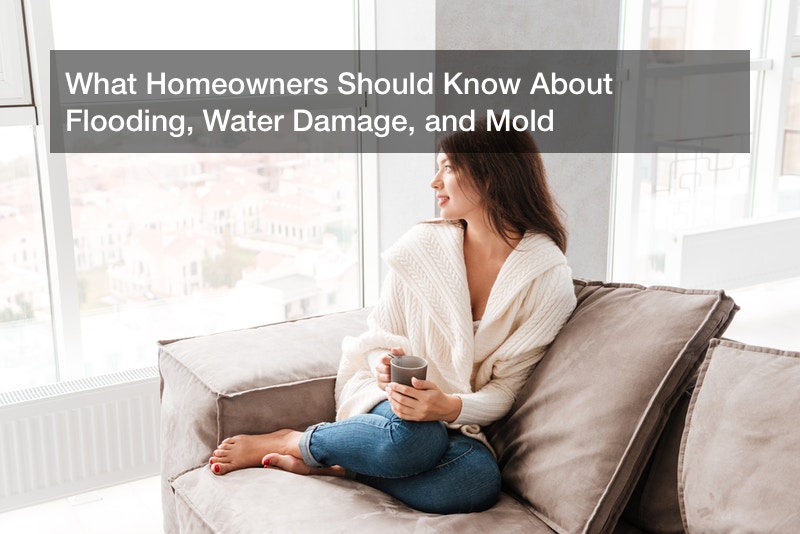
 Considering the extreme weather experienced throughout the nation, thanks in large part to climate change, more American homeowners are facing the scenario of flooding and subsequent water damage and mold issues. But if you don’t know what you’re doing, you could end up making a bad situation that much worse. Here are a few key points you should keep in mind if you’re dealing with the aftermath of water damage.
Considering the extreme weather experienced throughout the nation, thanks in large part to climate change, more American homeowners are facing the scenario of flooding and subsequent water damage and mold issues. But if you don’t know what you’re doing, you could end up making a bad situation that much worse. Here are a few key points you should keep in mind if you’re dealing with the aftermath of water damage.
Your Damage Might Not Be Covered
Approximately 93% of American homeowners have at least basic homeowners insurance, but your policy will probably be pretty limited in terms of water damage. It will likely cover damage from a burst pipe, but a basic insurance policy won’t help you if your home is flooded due to a storm, you’ve got damage from a sewer backup, or you’re dealing with gradual leaks from your plumbing. Essentially, any damage that stems from neglect, gradual deterioration, or natural disasters aren’t going to be covered under that policy. If you live in an area that’s prone to flooding or you simply want to err on the side of caution, you may want to talk to your insurer about purchasing an additional policy to provide some extra peace of mind.
Have a Flood Preparation Plan
It is important to note that for each inch of rain, that falls on 1,000 square feet of roof, produces more than 600 gallons of runoff. Whether your area has experienced flooding in the past or experts have warned that torrential storms could make rising water imminent, you’ll want to familiarize yourself with the best practices to ensure your safety and to minimize damage. You should always follow evacuation orders and refrain from waiting until the last minute to get to higher ground. Never walk through flood waters, as these can be contaminated with chemicals and harmful debris. Upon your safe return to your home, take pictures to document the damage and wear proper gear when inspecting the damage. Throw out food and other items that were contaminated by flood water and seek professional help when assessing the situation at your home.
You’ll Want to Clean Up Right Away
Although a basement has to meet legal egress requirements for a safe escape during an emergency, there’s nothing to say that your basement will be safe after it floods. After a major storm or hurricane, mold is bound to follow. And since mold exposure has been linked to a number of health issues, you’ll want to proceed with extreme caution. Studies have found that organic levels can be two to five times higher indoors than outdoors, which can lead to several health problems when inhaled. These respiratory issues may be amplified when mold growth is a factor. When you are able to return to your home, you should consider any surface that’s been wet for over 24 hours to be contaminated with mold. The Better Business Bureau recommends that you ask your insurer for reputable mold mediation companies in your area and that you verify the company’s licensure and reviews independently. You should also obtain at least three different quotes and check for any red flags in online reviews. However, it’s important to get this work done quickly to minimize potential structural damage to your home.
Damaged Belongings Aren’t the Only Thing to Worry About
Mold and water-logged belongings aren’t the only risks you might face when your home floods. Excess moisture and water damage can attract a number of uninvited guests. Since 68% of all pest control service revenue in the U.S. came from residential jobs in 2015, homeowners will want to watch out for these creatures to keep costs and frustration down. Since insects and rodents are often attracted to water, leaks and flooding can act as the proverbial welcome mat that will encourage these pests to move in. That’s why you should do your part to have regular leaks fixed quickly and ensure that flood damage clean-up is handled right away and by a professional. Otherwise, your entire home could become a hotbed for unwanted activity.
Certainly, the subject of flooding isn’t a fun one. In fact, water damage is likely one of your worst home-related nightmares. But if you know how to deal with it properly, you can keep this would-be disaster from taking over.



